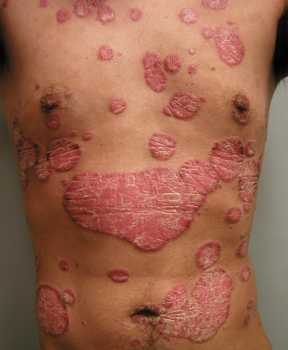03 Sep Severe Psoriasis Linked To Increased Risk of Mortality
MedicalResearch.com Interview with:
Megan H. Noe MD, MPH
Clinical Instructor and Post-Doctoral Research Fellow
University of Pennsylvania, Department of Dermatology
Perelman Center for Advanced Medicine
Philadelphia, PA 19104
MedicalResearch.com: What is the background for this study? What are the main findings?
Response: Previous research has shown that patients with psoriasis have higher rates of hypertension, diabetes, cardiovascular disease and chronic kidney disease that may put them at an increased risk of death.
Our research found that patients with psoriasis covering more than 10% of their body had almost double the risk of death than people of the same age with similar medical conditions, but without psoriasis.
MedicalResearch.com: What should clinicians and patients take away from your report?
Response: Body surface area should be routine assessed by physicians given its prognostic significance.
Also adults with psoriasis covering more than 10% of their body should maintain a healthy weight, normal blood pressure and blood sugar.
MedicalResearch.com: What recommendations do you have for future research as a result of this study?
Response: Further research is necessary to understand how treatment of psoriasis will effect this increased risk of death.
Disclosures: This research was supported by the National Psoriasis Foundation and the National Institutes of Health.
MedicalResearch.com: Thank you for your contribution to the MedicalResearch.com community.
Citation:
J Invest Dermatol. 2017 Aug 23. pii: S0022-202X(17)32808-7. doi: 10.1016/j.jid.2017.07.841. [Epub ahead of print]
Objective Measures of Psoriasis Severity Predict Mortality: A Prospective Population-Based Cohort Study.
Noe MH1, Shin DB2, Wan MT2, Gelfand JM3.
Note: Content is Not intended as medical advice. Please consult your health care provider regarding your specific medical condition and questions.
[wysija_form id=”5″]
Last Updated on September 3, 2017 by Marie Benz MD FAAD


